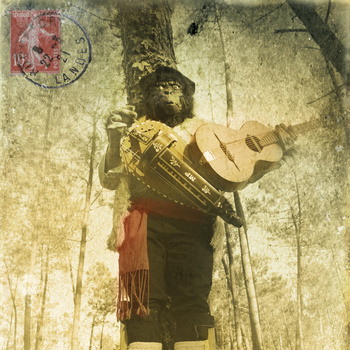|
Romain Baudoin and Artus
|
|
Romain Baudoin
Artús
Familha Artús “Never fear quarrels, but seek hazardous adventures.” – Alexandre Dumas Strange sounds are afoot in Gascony, the southwest region of France that birthed D'Artagnan of The Three Musketeers. The province lies close to Spain, and the Basques, who had an influence on the dialect spoken in Gascony (in fact, the name 'la gascogne' was derived from the Basque language). The area also lies in the Occitan cultural region, that mysterious sector overlapping parts of Italy, Spain, and France; the medieval Occitan language – which is given 'official' status in Catalonia, but not in France, where the use of this ancient tongue has been declining – has been the focus of some interesting cultural reclamation projects. The Gascon dialect is believed to be derived from Occitan. In Italy, bands such as Gai Saber and Lou Dalfin have brought the music to life in both traditional and folk-rock contexts. In Gascony, the musical group and collective Familha Artús (now simply referring to themselves as 'Artús') have been mining the varied cultural strains that have fed into Gascony's unique character. Artús' output has been released on the Pagans label – a name that appropriately captures the barbaric yawp of the members' radical take on Gascon tradition. Artús utilize both electric and acoustic instrumentation, and they draw on traditional Gascon music (and, occasionally, also from the Breton fest-noz tradition). However, the band never 'plays it safe' – they are resolutely experimental, drawing from rock music's progressive genre. The hurdy-gurdy is a main instrument (the fearless Romain Baudoin), accompanied by a battery of percussion, violin, keyboards, the Basque 'ttun-ttun' (a stringed drum), pipes, and bass. That Artús do not utilize an electric guitar would appear to be a band 'policy' to cede dominance to the hurdy-gurdy; but the fact is, Artús kick up a racket without dropping into prog-guitar clichés. On record, the band veers between the accessible, and the stutter of static and noise. If there is one thing about Artús that one could call 'predictable,' it is the emergence of the unexpected. A traditionally-based tune might veer off into pounding industrial rhythms, or angular post-punk, or the 'call and response' one equates with French vocal music, or a sudden black whole of ambient gravity reeling in any visible light. The group might kill a riff to death, and then kill it again; or, Artús might head down a minimalist path of repetition. But one never knows, and this is what makes listening to the group's music exhilarating.
One can find all of these expressions on the 2010 album Drac, one of Familha Artús' more accessible ventures. There are nods to dance culture on a song such as “A la bòrda i a nau pans” but refracted through the Artús sensibility one gets distorted vocals, pipes and a funky-Gascon electro rhythm that builds until, like the best punk tunes, it just ends on its own steam.
“Capitèni Salias,” a ten-minute epic, drives home the minimalist influence with regional rhythm. A whirling introduction is underscored by group chanting, before the melody is rendered through the Artús noise machine and the band beats out an industrial space hymn. It's mesmerizing, tribal – and, importantly, it sounds new.
The self-titled Artús utilizes one of Artús' muses: Occitan poetry. Here, poems of Bernat Manciet (1923-2005) are brought to life by the band and the literary contributions of Hubert Cahuzec. I wish that I could speak more to the poetry – not much is given by way of translation – but the same kind of challenging twists and turns between straight-ahead melodies and progressive exploration roost on Artús' latest release. A track such as “Lo Plumion Negre” gives the band a chance to stretch out, taking in rural beauty, call-and-response vocals, and a gorgeous coda that sinks one into the '80s electronic new wave.
Romain Baudoin's 1 Primate project continues the unclassifiable bravery of heavy soundscapes that are the Artús family's stock-in-trade. The aim of this solo venture is the exploration of the hurdy-gurdy (and – here, Baudoin's hurdy gurdy has been modified to include something like an electric guitar (see video, below), and so we get to feast on the fabulous drone of this buzzing medieval synthesizer. The shapeless noise that Baudoin concocts splits off into its own traces in the atmosphere: there is a method to the madness, with the white noise coalescing and disintegrating, occasionally given bottom by rhythmic bass notes. It's the joy of discovery out of the grains of chaos. So there's what could pass for interstellar noise, and at other times hints of reggae even surface. I find it all oddly soothing, and perhaps in its own way 1 Primate might serve as a decent primer for the Pagans label itself: tradition that knows no boundaries. - Lee Blackstone
|

|
|
|